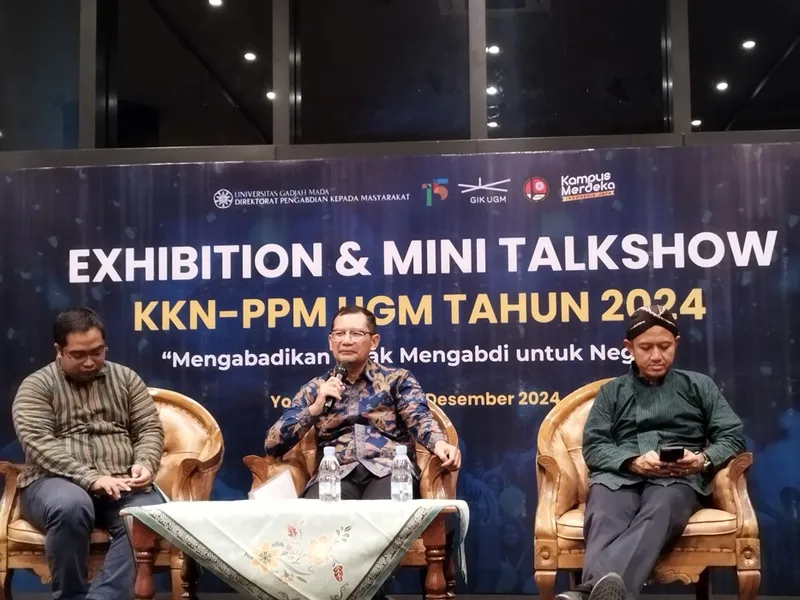Universitas Gadjah Mada's (UGM) Academic Hospital (RSA UGM) is positioning itself as a leader in Indonesia's medical education and healthcare innovation through a strategic partnership with Tawada Healthcare. This collaboration aims to enhance healthcare services and establish RSA UGM as a central hub for robotic surgery training. By integrating cutting-edge technology and a focus on education, RSA UGM is setting new standards in medical care and providing advanced training opportunities for medical professionals across the country.
Robotic Surgery Advancements at RSA UGM
One of the most notable advancements introduced by RSA UGM is the CORI Robotic Surgical System, designed for total knee replacement surgeries. The system provides enhanced precision and improves the efficiency of the surgical process, reducing the time required for surgeries and recovery. Dr. Darwito, Director of RSA UGM, highlighted that while hospitals face challenges related to capital investment and the need for skilled labor, the integration of robotic technology offers significant improvements in patient care. The CORI Robotic Surgical System is specifically beneficial for orthopedic procedures, offering more precise outcomes and minimizing the invasiveness of the surgeries.
The ability to perform such surgeries with increased precision helps reduce complications, shorten recovery periods, and improve overall patient outcomes. This makes RSA UGM's Orthopedic Center a leader in offering advanced medical services, particularly for patients undergoing knee replacements, which are becoming increasingly common due to aging populations.
Educational Opportunities through Collaboration
The collaboration between RSA UGM and Tawada Healthcare is centered around the development of educational programs to train medical professionals in the use of robotic technologies. Dr. Darwito emphasized the importance of education in ensuring that Indonesia's healthcare workers are equipped to handle the challenges of modern medical procedures. RSA UGM's role as an academic hospital enables it to provide both education and healthcare services simultaneously, which is a unique advantage in preparing the next generation of medical professionals.
The partnership focuses on training programs for doctors, nurses, and other healthcare workers. These programs are designed to ensure that medical professionals across Indonesia can learn and master robotic surgical techniques. RSA UGM plans to become the primary center for training physicians in robotic surgeries, with a focus on knee replacements as one of the first areas of expertise. This initiative will also include the development of research opportunities and collaborative studies, making RSA UGM a beacon of innovation in medical training and surgical practices.
Tawada Healthcare’s Role and Commitment
Tawada Healthcare, with its extensive experience in managing healthcare facilities and developing healthcare technologies, is a key partner in the collaboration. CEO Satrija Sumarkho reiterated Tawada Healthcare’s commitment to improving healthcare quality by focusing on innovative medical technologies. Since its establishment in 1999, Tawada Healthcare has been at the forefront of transforming Indonesia’s healthcare landscape by offering efficient, affordable, and high-quality healthcare services.
Sumarkho highlighted that the collaboration is not just about education and training but also includes joint research initiatives, technology implementation, and the development of new medical treatments. By improving the overall healthcare infrastructure, this partnership aims to meet the increasing demand for advanced healthcare services across Indonesia, especially in regions where medical facilities are limited.
Strengthening Indonesia’s Healthcare System
Indonesia faces numerous challenges in the healthcare sector, including disparities in healthcare access across the country and the underutilization of modern medical technologies. RSA UGM and Tawada Healthcare's collaboration is focused on addressing these issues by providing cutting-edge technologies and education to healthcare workers nationwide. The goal is to ensure that Indonesian healthcare professionals are equipped with the skills to use advanced technologies like robotic surgery, which can significantly improve patient outcomes and reduce the strain on the healthcare system.
The partnership is also designed to strengthen RSA UGM’s role as a leading institution in both medical education and healthcare service provision. By training doctors in robotic surgery, RSA UGM hopes to contribute to the wider adoption of these technologies across the country, ensuring that Indonesian healthcare facilities can provide world-class treatments.
In conclusion, the collaboration between RSA UGM and Tawada Healthcare represents a significant step forward in improving healthcare quality and medical education in Indonesia. By focusing on robotic surgery and providing comprehensive training for healthcare professionals, this partnership has the potential to transform Indonesia’s medical landscape, making advanced healthcare accessible to more people and ensuring that the country’s healthcare system is prepared for future challenges.







 Friday, 27-02-26
Friday, 27-02-26







